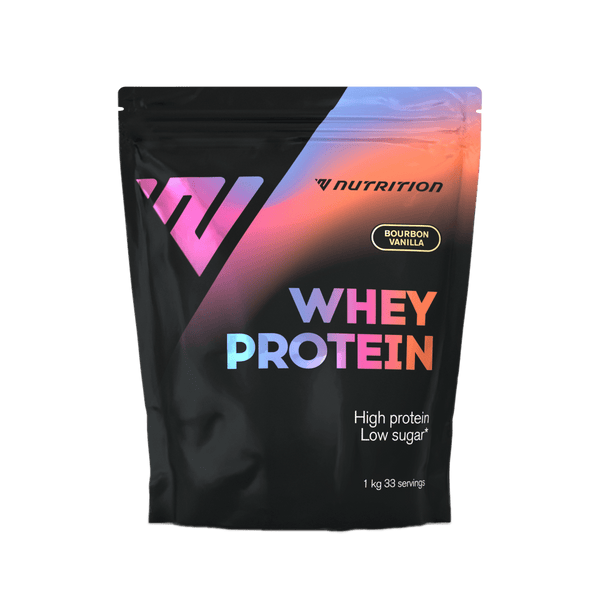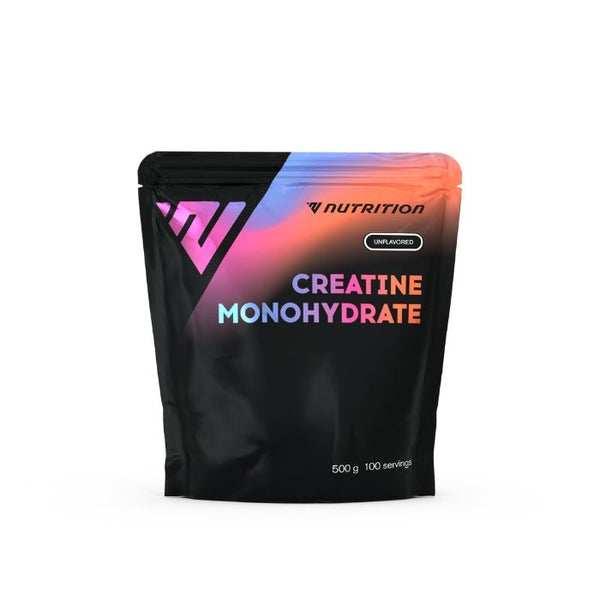When regular training and large meals, which are taken several times a day, fail to achieve the set goal, a professional and scientifically tested sports diet should be used, which will facilitate training, help muscles grow and provide the necessary support in the process of weight gain. But what to choose when there is so much?
Creatine: So that it doesn't seem like something foreign and "some kind of chemistry", we can immediately say that your body also produces creatine, which takes care of providing energy to the muscles. When using creatine powder as a supplement to your daily diet, the content of this organic acid in the muscles can be increased by up to 40%. The results of many studies show that creatine increases muscle strength, so workouts are more successful, resulting in more muscle mass over time. (It should be mentioned here that creatine is not a magic remedy that will grow your muscles while sitting on the couch, because it will only have the desired effect if you combine creatine with regular strength training.) It can also increase the water content in muscle cells, which causes slight swelling and sends signals for muscle growth. Some studies have shown that creatine can reduce the breakdown of proteins in muscle, as well as increase the levels of hormones (such as the hormone IGF-1) that are responsible for muscle growth. Creatine is one of the most studied dietary supplements, so it is not only absolutely safe to use, but also its effectiveness in increasing muscle mass has been scientifically proven several times. If you want to gain more muscle mass, do not do without creatine!
Protein powder: Even for those who are absolutely not interested in sports nutrition, the word "protein" is certainly not unfamiliar, behind which in fact lies the well-known proteins, which are found in greater or lesser amounts in almost all everyday products - milk, eggs, legumes, nuts, meat, bread, etc. . Getting enough protein is critical if you want to increase muscle mass, because it is a muscle food, and if the body does not get enough protein for a long time, it will take it from the less important tissues, which are usually muscle tissue. The recommended daily dose of protein for people who want to increase muscle mass is an average of 2 grams of protein per kilogram of their body. So, if a person weighs 90 kg, he would be advised to consume 180 grams of protein per day. Most people are unable to absorb the amount of protein they need with food alone, so protein powders should be used. (Whey protein powder is definitely the most popular, but beef protein powders and vegan powders, such as soy and hemp, are also available.) When choosing a protein powder, it is not only its origin and taste that are important, but also the percentage of protein in it. its nutritional value should be studied.
Geiner: In order to increase your weight, it is important to create a calorie prophylaxis - to consume more calories during the day than you consume, because otherwise your weight and muscle mass will decrease over time. Those people who need to get a really impressive amount of calories every day to gain or maintain weight know that it is also possible to get tired of eating, because meals have to be eaten often and the portions are usually large. To make it easier to achieve calorie prophylaxis and not have to overeat regularly, you can bring a muscle mass trainer into your diet, with the help of which you will be able to drink about 500-1000 kcal at a time, providing your body with the necessary protein and carbohydrate charge.
Beta Alanine: This amino acid reduces fatigue, improves physical performance during training, as well as helps increase muscle mass if the training plan is followed. Studies have shown that by combining regular physical activity with 4 grams of beta alanine per day, a significant increase in lean muscle mass can be seen after 6-8 weeks. If you want to increase muscle mass and are ready to follow a workout plan, then it is worth adding beta alanine to your daily diet.
BCAA or branched chain amino acids: BCAAs consist of three essential amino acids (leucine, isoleucine and valine) that the human body cannot produce on its own, but they receive through diet - they are critical for muscle growth because they make up about 14% of the amino acids in muscle. One study, in which participants ingested a drink with 5.6 grams of BCAA powder after resistance training, found that BCAA increased protein synthesis in muscle tissue by 22%, which means that BCAAs can be used to gain more muscle over time. However, keep in mind that your body will only reach the full potential of BCAAs if you take in other essential amino acids found in, for example, whey protein powder. In addition to supporting muscle growth, BCAA powder also helps reduce muscle pain after exercise, fatigue and muscle breakdown.
HMB amino acid or beta-hydroxy-beta-methylbutyrate: The amino acid HMB is produced by your body itself, but its additional intake in the form of a food supplement allows you to increase the level of HMB in the body, thus promoting muscle growth, because HMB stimulates protein synthesis in skeletal muscle. (So, to enjoy the full range of benefits of protein, HMB should be added to the kit.) No less important is the fact that HMB reduces the breakdown of muscle proteins. Several studies have shown that weightlifting and taking 3-6 grams of HMB per day can significantly increase lean body weight, and HMB is most effective when you are a beginner who has decided to focus on weightlifting or an experienced fitness enthusiast who has decided to gain weight. your workout load.
Of course, in addition to these sports nutrition products, there are several other things that can help increase muscle mass, but this is the basic base to start with. It is worth remembering that none of them is a magic powder, because it will provide the desired effect only if you combine its use with regular strength training and thoughtful diet.
Sources: Healthline; PubMed Central; Journal of Applied Physiology






